
Plant-based milk has gone from an obscure idea to one that’s absurdly popular, generating more than 3 billion dollars a year in the United States alone. Almond milk and almond milk blends top the list in popularity, which isn’t surprising, as almond milk is lactose free, has an enjoyable nutty flavor, and works well as a milk replacement. It’s also fantastic in smoothies, cocktails, and many other situations.
However, almond milk isn’t always the right choice. For one thing, it’s entirely unsuitable for anyone with a nut allergy. It also isn’t very environmentally friendly, as almonds require an excessive amount of water to grow. And, sometimes, you simply don’t have any almond milk on hand.
Thankfully, there are plenty of popular substitutes for almond milk including soy milk, rice milk, cashew milk, plus more obscure options like quinoa milk and spelt milk. People not avoiding dairy could even use regular cow’s milk instead of almond milk.
Most of these substitutes can be used as a 1:1 substitution for almond milk, making them easy to work with. Still, they are not all equal. These almond milk alternatives all have their own quirks, such as the way they behave when added to hot coffee and the effect they have on creamy sauces. As such, it’s crucial to understand the milk you’re considering before you start using it.
Substitutes For Almond Milk
Cashew Milk

Cashew milk is simply made using raw cashews and water, making it very similar to almond milk. Even the nutritional profiles are similar, although cashew milk is generally lower in calories and fat than almond milk (this may change if you make cashew milk at home yourself).
Flavorwise, cashew milk is less nutty and offers a slight sweetness instead. It’s also creamier, which is perfect if you’re adding it to sauces, hot chocolate, or ice cream. Cashew milk can be even creamier if you make it at home and soak the raw cashews for a couple of hours before blending them with water.
While cashew milk isn’t incredibly thick, it does tend to get thicker when it is heated, as does almond milk. The effect is useful for cooking and is another reason why cashew milk works well as an almond milk substitute.
You’ll need to be careful if you’re using cashew milk in coffee, as it splits at a relatively low temperature. As a result, it can easily curdle, even if you’re cautious with heating it. Adding a little oat milk helps you get around this issue without too much impact on the flavor of your drink.
Other Nut Milks

Nut milks are generally made in the same way as each other, by blending nuts with water, then straining the pulp out to create a milk-like drink. Almond milk and cashew milk are the most famous examples, but there’s a surprising number of others out there.
Macadamia nut milk and hazelnut milk are two versions that you might have seen in local grocery stores. Hazelnut milk is especially appealing because of its rich flavor, which makes it excellent in coffee and hot chocolate, while macadamia nut milk is fattier and has a thicker texture than many other plant-based milks.
Then there are the less well-known types, such as pecan milk, walnut milk, pistachio milk, peanut milk, Brazil nut milk, and even pili nut milk. The selection is likely to keep increasing, given that you can make milk from almost any type of nut.
Despite all being made from nuts, there are noticeable differences between these various milks. As such, you’ll need to experiment to find the best flavor and texture for your recipe.
Coconut Milk

Coconut milk should be familiar, as it’s one of the most popular plant-based milks. It’s made from coconut flesh, so it has a distinct coconut flavor and plenty of creaminess (while almond milk has a milder flavor and isn’t as creamy).
Because of these differences, coconut milk is best used for cooking, while almond milk is excellent over cereal and smoothies. Both products can be used in coffee, but you must be careful, as coconut milk will easily curdle with too much heat.
Buying coconut milk can be a little complex, as the product is sold refrigerated, in shelf-stable packaging, and in cans. The refrigerated versions will typically contain the fewest additives, which could make them healthier. However, some shelf-stable versions are decent too. It’s just a matter of reading the labels.
Canned coconut milk isn’t bad for you; it’s just different. The liquid here tends to be more concentrated and creamier than coconut in a carton, with a higher fat content. You’ll need to dilute the canned version before it’s suitable as an almond milk replacement.
Rice Milk

Rice milk is another easy to find option. It’s also excellent as a replacement for almond milk because it has the same thin consistency and low fat content. Rice milk is also allergen-friendly, so most people should be able to consume it without a problem.
The biggest drawback is that rice milk is fairly high in carbs. This could be an issue if you’re following a keto diet or simply want a low carb option. Still, the carbs do provide you with fast energy, which is helpful in some situations.
Beyond this, rice milk is often inexpensive. That’s great if you’re on a tight budget, given that some of the other plant-based milks can be pretty pricy.
Soy Milk

Soy milk is an exciting option, as it is higher in protein and thicker than most other plant-based milks. Those features make it a powerful milk substitute for baking and are why soy milk continues to be so popular.
Yet, soy is also controversial, with concerns that it impacts estrogen levels and has negative impacts on health. However, research generally points to benefits from soy rather than risks. If there are any undiscovered risks, they’re likely to happen with very high levels of consumption, rather than just drinking soy milk every so often.
That said, it’s important to choose your product carefully. Soy milk often includes extra sugar, flavorings, and other additives. Unflavored and unsweetened soy milk is normally the best choice, as this is the healthiest and most versatile option.
Pea Milk

Pea milk is a rising star in the plant-based milk world. It’s still hard to find, but it’s worth searching out, as the product is allergen-friendly and surprisingly nutritious.
Both pea milk and soy milk are legume-based products, which gives them many similar features. Plus, the fat and protein content of pea milk is close to dairy milk, making it a useful ingredient in coffee. Soy milk has that feature too, but soy milk has a more distinct flavor than pea milk, making it the less attractive option.
Notably, the milk isn’t made from the green peas you serve with your dinner. It’s made using split yellow peas instead. These are also used to make pea protein powder.
Oat Milk

While oat milk doesn’t sound exciting, it has been rapidly increasing in popularity. This is partly because the milk has a creamy texture and mild flavor, features that work well in many situations.
The milk is especially attractive for coffee. Not only is the flavor and texture of oat milk complementary, but oat milk also has a high splitting point. This allows it to reach higher temperatures without curdling – a crucial feature when you’re serving coffee.
People with gluten sensitivity may need to be careful, as oats can be easily cross-contaminated with gluten. Look for products marketed as gluten free, especially those that have been tested to ensure there has been no contamination.
Seed-Based Milks

Now, we have all the plant-based milks that are made from seeds. These tend to be gluten free and allergen friendly, but vary in their nutrients and flavor profile.
Hemp milk is the most popular seed-based milk. It has a decent amount of protein, a nutty flavor, and a creamy texture. Those features make it more filling and substantial than almond milk, but still a good replacement.
Quinoa seeds can be used to make plant-based milk as well. It has a mild nutty flavor and is somewhat creamy, so it replaces almond milk well in most recipes.
Then, there are other seeds, like sunflower seed milk, sesame seed milk, and flax seed milk. While these are harder to come by, they’re worth seeking out. You could even make your own.
Less Common Plant-Based Milks

We’ve covered a variety of plant-based milks, but honestly, we’re just scratching the surface. There’s now a huge selection of plant-based milks on the market, with more being developed regularly.
Others you may see include spelt, cowpea, and even potatoes. While these are all unusual choices, they do have advantages. In particular, potato milk has been predicted to rise in popularity, partly because it is highly sustainable. Potato milk may even taste good, as surprising as it seems.
Dairy Milk

Almond milk is often used as a substitute for dairy milk. So, why not do things the other way around and use dairy milk instead of almond milk?
Whether this is a good idea will depend on why you’re using almond milk in the first place. Obviously, if you’re lactose intolerant, vegan, or are opposed to the dairy industry, you’re not likely to want milk from cows.
Still, regular milk is a great choice if you’re not opposed to dairy. It will work well in all the same situations as almond milk, including coffee, baking, and sauces. Dairy milk also behaves predictably at high heat, while almond milk can quickly become bitter.
Finally, dairy milk is more nutritious than most plant-based milks. Because of this, anyone relying on plant-based milks needs to get the missing nutrients elsewhere in their diets.
Plant-Based Milk Blends

Finally, we need to talk about milk blends. These rely on multiple types of plant-based ingredients, such as oat and rice milk or oat, coconut, and quinoa milk. Combining plants like this allows companies to get much closer to the consistency of milk. The product often has a better flavor profile as well.
There are even barista plant-based blends that behave like regular milk in coffee and can create the traditional barista foam. Such products tend to be higher in fat and protein than regular plant-based milks and also have a mild flavor, so they don’t overwhelm your coffee.
Which Almond Milk Substitutes Are Right For You?
Closest Alternatives To Almond Milk
Not surprisingly, other nut-based milks often have a similar texture and flavor profile as almond milk. Rice milk can be appealing too, as it is thinner than many other options.
Keto Friendly Almond Milk Substitutes
If you’re following the keto diet, you’ll be looking for low carb almond milk alternatives. These include unsweetened versions of most nut milks, coconut milk, and pea milk, along with half and half and heavy cream.
The Best Almond Milk Substitutes For Baking
Rice milk is an easy choice when you’re baking, as the texture and protein content is similar to almond milk. Some other nut-based and seed-based milks are worth trying as well, such as flax milk.
Soy milk is often recommended for baking too. However, soy milk is thicker than almond milk, so it may change the texture of your dish.
The Best Almond Milk Substitutes For Coffee
Hemp milk can be a good choice for coffee, as it has a sweetness that’s similar to almond milk. It resists separation too, making it easy to mix into hot drinks. Rice milk and soy milk are viable too. Both are easy to find and are often used in coffee.
The Most Environmentally Friendly Almond Milk Alternatives
Oat milk and pea milk are both fantastic options for the environment, requiring less water and less land use than most other types. Potato milk is exceptional too, although this is currently an obscure option and not easy to find.
However, environmental friendliness isn’t as simple as it might seem. There are also multiple aspects to how a product impacts the environment, like carbon footprint, the amount of water used, land use, resources used to process the product, and more. Products may do well in some of these areas but not others. The effect may also vary depending on where and how the plant-based milk was produced.
Still, remember that any plant-based milk will have a lower environmental impact than dairy milk. As such, you’re doing the environment a favor no matter what plant-based milk you choose.

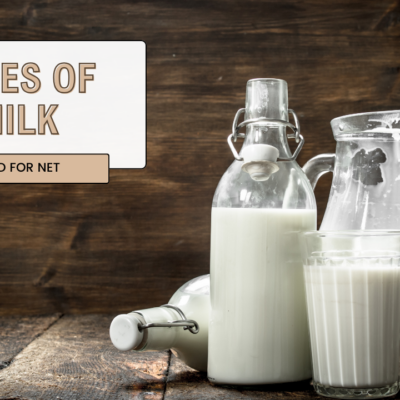
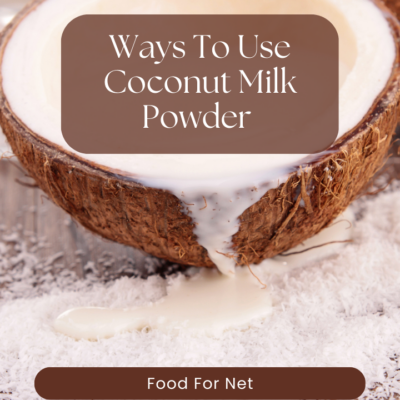
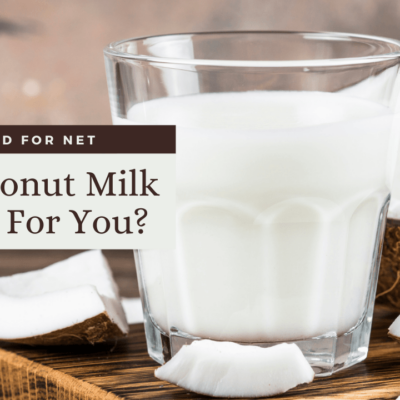
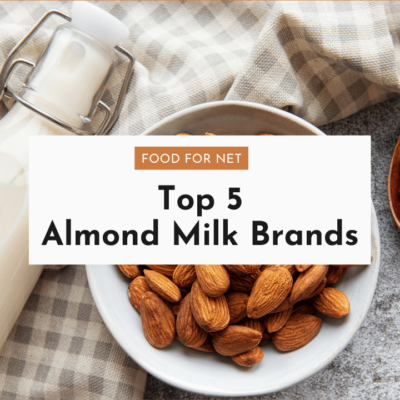
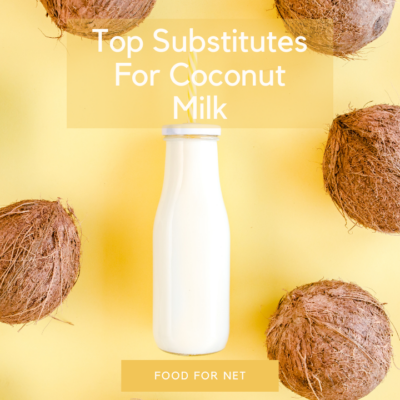
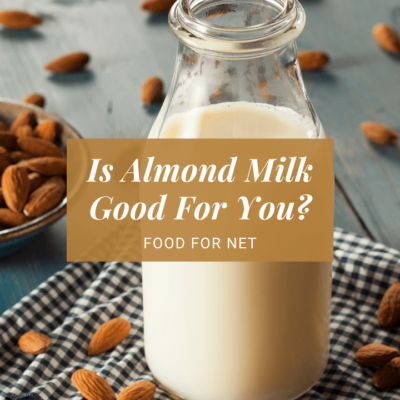
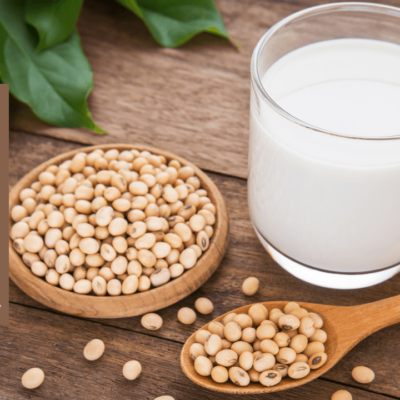
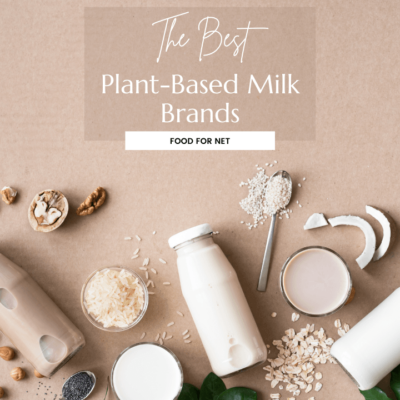
 19 Types Of Steak That Will Delight Every Carnivore
19 Types Of Steak That Will Delight Every Carnivore
Leave a Reply